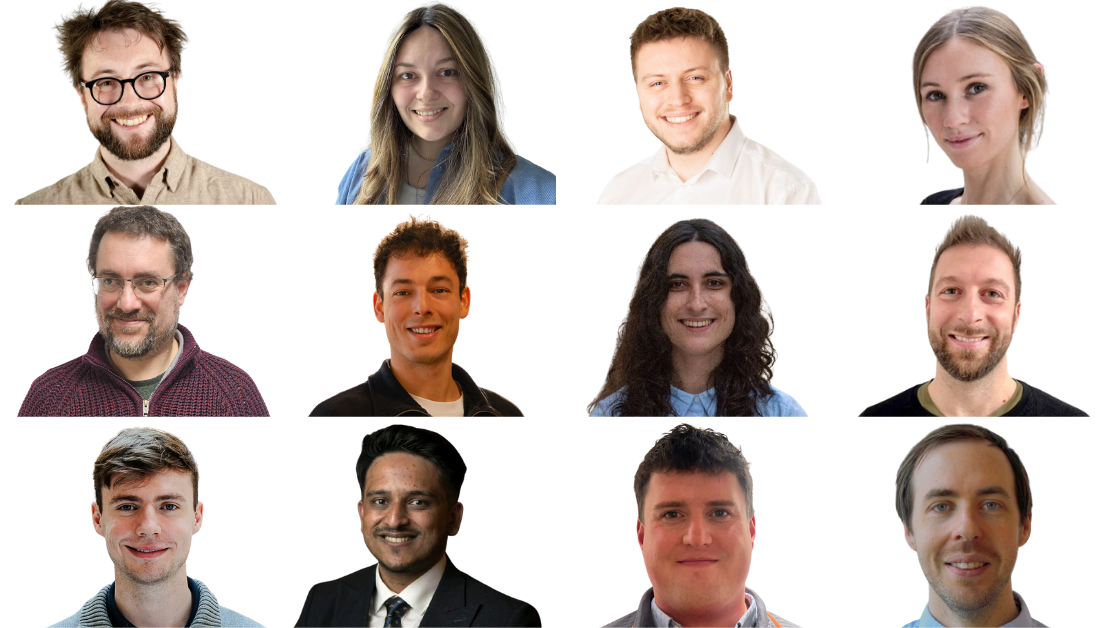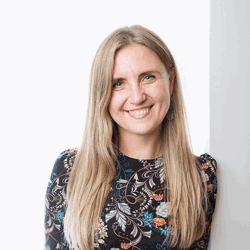As 2025 begins, the Enterprise Hub proudly introduces its newest Enterprise Fellowship cohort. These 12 remarkable researchers and innovators are embarking on a journey to transform groundbreaking ideas into impactful ventures. Their projects span diverse technologies and reflect emerging trends in the UK’s innovation landscape.
With all the awardees from outside the Golden Triangle, this cohort is truly highlighting the Hub’s growing national reach and the vibrancy of innovation ecosystems across the UK.
A Year of Opportunity
The cohort will benefit from:
- Equity-free funding: Up to £75,000 to accelerate their ventures.
- World-class mentorship: Personalised guidance from top entrepreneurs and industry experts.
- Expert training: 15 days of immersive, hands-on entrepreneurial skill-building.
Over the next year, these innovators will refine their strategies, overcome the challenges of scaling deep-tech ventures, and connect with investors and stakeholders to bring their visions to life.
Addressing the most pressing societal issues
This year, clean tech innovation takes centre stage, with four of the 12 innovators developing solutions to tackle climate and environmental challenges. This trend also reflects the increasing alignment of innovators with global sustainability priorities.
By contrast, only two participants are working on medical technologies, and this highlights the programme’s commitment to supporting innovators across a wide range of disciplines, ensuring access to expert mentorship, funding, and training.
Meet the cohort
- Dr. Jason Norman (University of Edinburgh)
Project: Wearable sensors for optimised medical compression Developing a low-cost disposable patch that integrates wearable pressure sensors into medical compression devices. This technology enables wireless measurement of compression to improve treatment consistency and reduce healing times.

- Dr. Magdalena Raykova (University of Strathclyde)
Project: Rapisense – Rapid detection of small molecules in complex samples A new technology for real-time, point-of-need testing of complex samples, such as milk, to detect low-concentration contaminants.
- Dr. Peter William Tinning (University of Strathclyde)
Project: Northern Light Microscopy Making advanced microscopy accessible with hardware systems up to eight times cheaper than current market options, empowering more life scientists with cutting-edge imaging tools.
- Dario Cazzola (University of Bath)
Project: ForceTeck Using computer vision, biomechanical modeling, and physics-based machine learning to analye athletes' movements from video footage, estimating contact and joint forces.
- Dr. Adrian Pugsley (Ulster University)
Project: Switchable Insulation Innovations Ltd – TRL6-7 transition Developing Switchable Insulation Panels (SwIPs) to turn insulated walls and roofs into controllable sources of free solar heat in winter and free cooling in summer.
- Mr. Oscar Festa (University of Southampton)
Project: Instamoor Creating design optimisation software for floating offshore wind systems, capable of modelling designs 100,000 times faster than traditional tools to accelerate renewable energy deployment.
- Dr. Mohammed Kamal (Newcastle University)
Project: RecoVolt – Optimising Battery Lifecycle A smart discharger for end-of-life EV batteries, enhancing recycling and reuse through advanced diagnostics and safe deactivation.
- Dr. James Churm (University of Birmingham)
Project: Kvector – Unlocking the Spectrum Providing low-cost, high-efficiency antennas for 5G and 6G networks using metamaterial technology to improve data capacity, even at challenging millimeter-wave and sub-terahertz frequencies.
- Ben Coyne
Project: Munnch NGM Ltd. Developing rugged, food-safe, garden-compostable insulating foam made from underutilised biopolymers. This material combines styrofoam-like performance with rapid composting technology.
- Henry Dunne
Project: Microneedle Solutions Ltd Creating vaccine patches that are painless, thermally stable, self-administered, cost-effective, and recyclable, aimed at reducing global health inequalities.
- Sara Alao
Project: Stars Edge Ltd Designing an innovative air-breathing engine for satellites to extend their lifespan and reduce operational costs.
- Lucy Hughes
Project: MarinaTex Providing planet-friendly alternatives to plastic with compostable films and coatings made from seafood waste and algae.
Making a Broader Impact
The 2025 cohort represents more than individual projects—they embody the creativity and resilience powering the UK’s entrepreneurial ecosystem. Whether tackling climate change, improving healthcare, or developing sustainable technologies, their work promises to make a lasting impact on society.
We look forward to following their progress throughout the year and invite you to celebrate their achievements.
Stay tuned for updates on their groundbreaking projects. The next round of Enterprise Fellowships opens soon. Visit the programme page to learn more.
Browse more articles
How winning Earthshot Prize has helped Hub members, Notpla, scale their vision of a future without plastic
As an Official Nominator for the Earthshot Prize, the Enterprise Hub revisits past winners Pierre-Yves Paslier and Rodr…
5 reasons to apply for the Enterprise Fellowship programme
Ready to transform your engineering innovation? Apply to the Enterprise Fellowships programme today.
Spotlight Series: Interview with Christina King, Chief Commercial Officer at Tribosonics
We spoke to Christina King, Chief Commercial Officer at Tribosonics, a unique sensing system that generates data, enabl…

